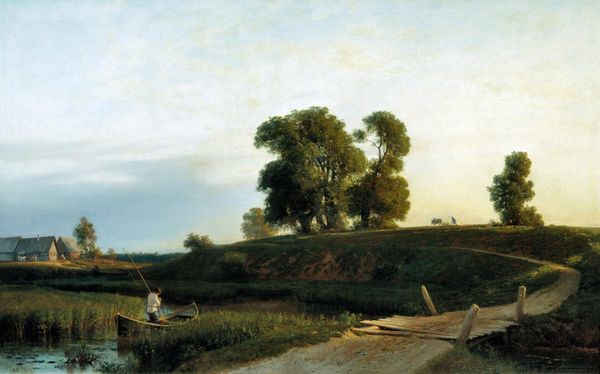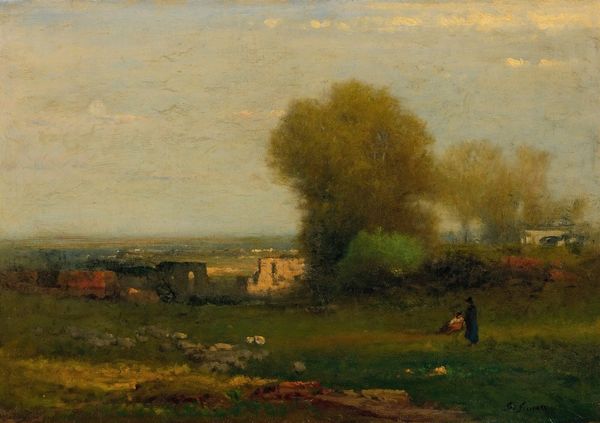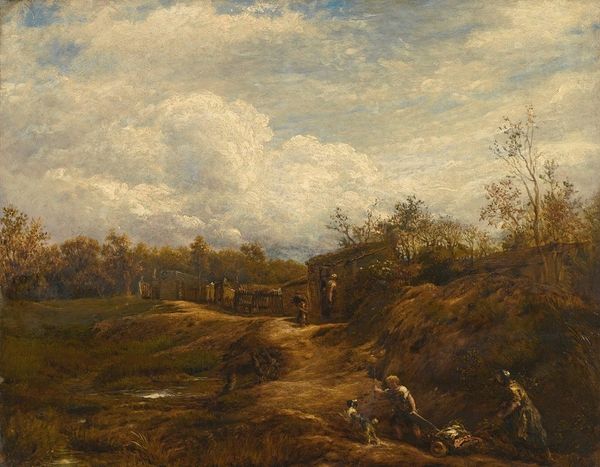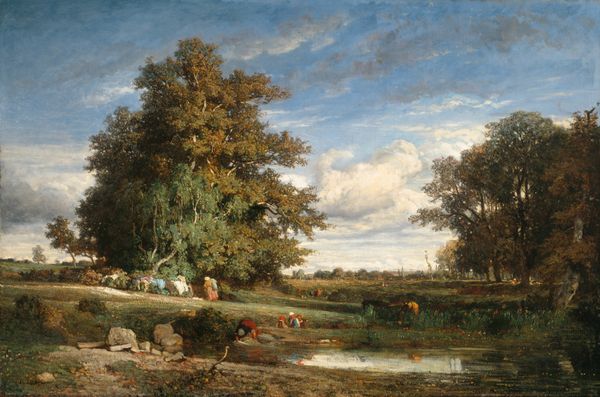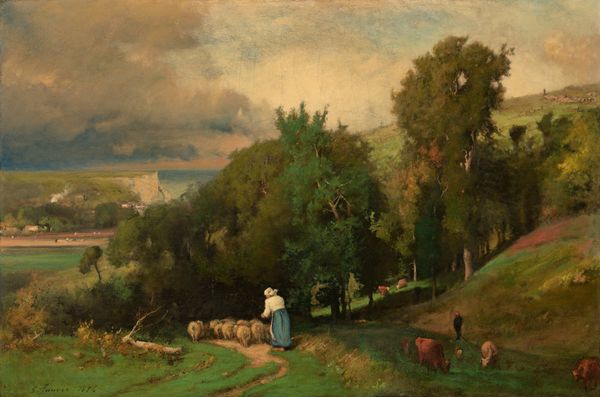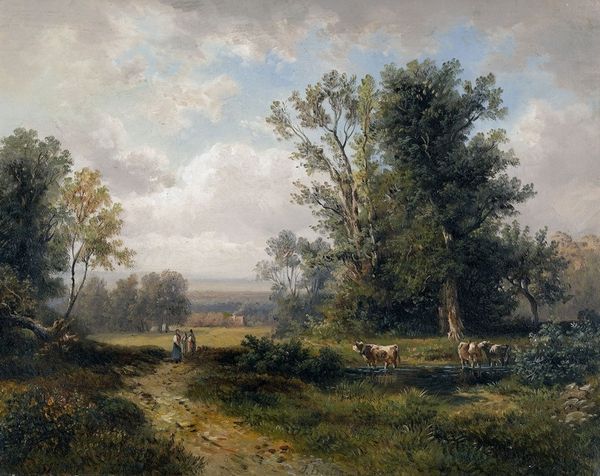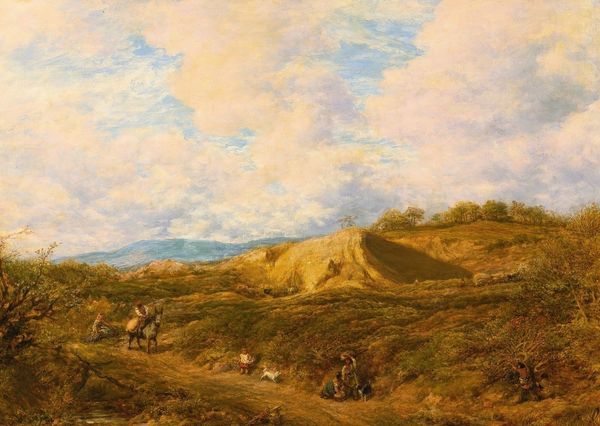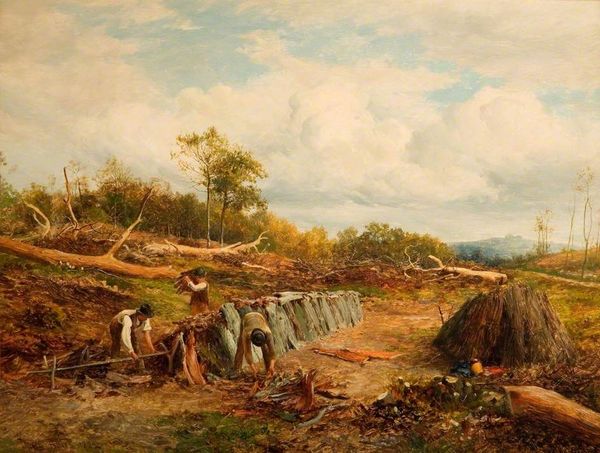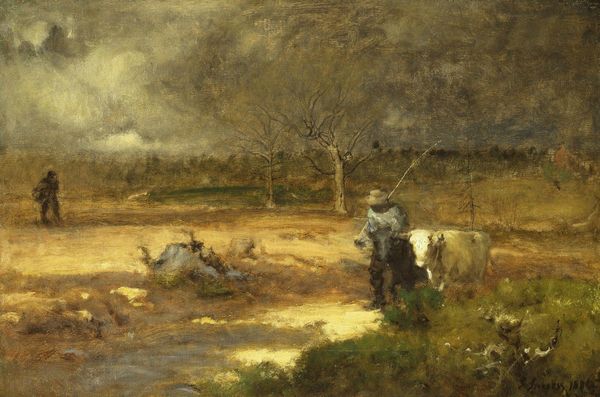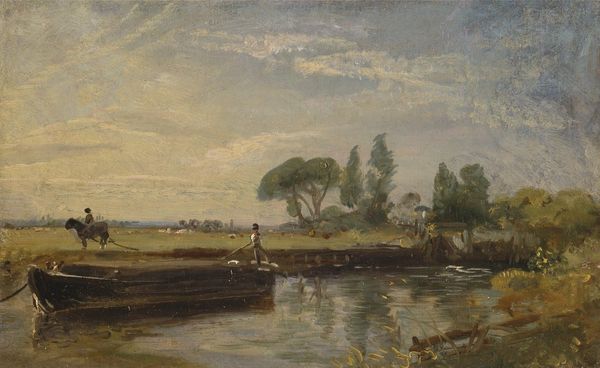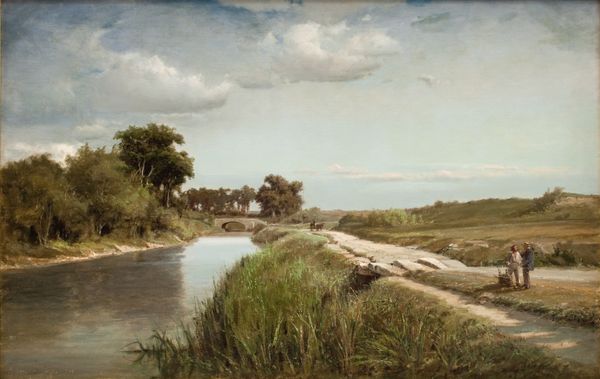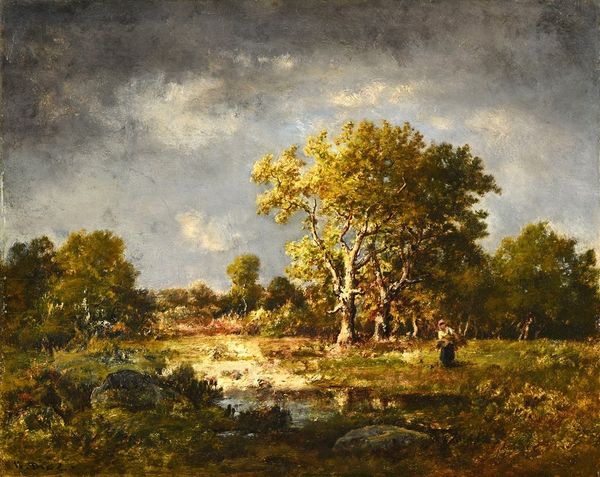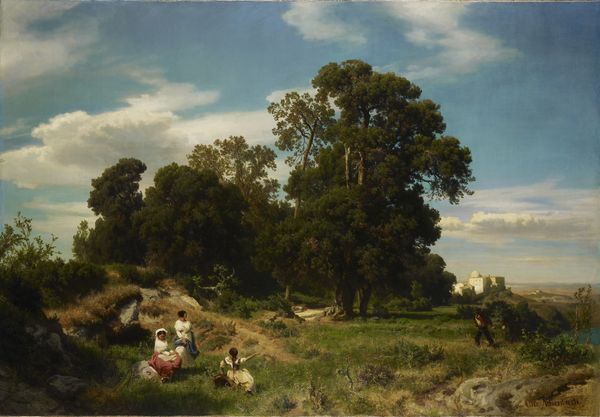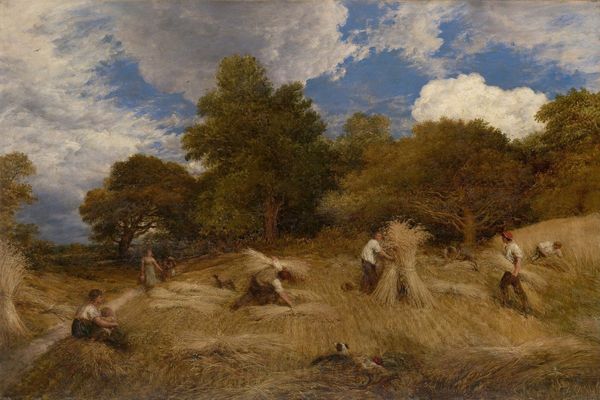
Dimensions: support: 959 x 1657 mm frame: 1330 x 2025 x 155 mm
Copyright: CC-BY-NC-ND 4.0 DEED, Photo: Tate
Curator: James Aumonier's "Sheep-Washing in Sussex," held here at the Tate, presents a pastoral scene, likely from the late 19th century. Editor: It has such a calming effect, the open space and the figures working in concert with the landscape. There's a harmony, even a sense of ritual here. Curator: Note how Aumonier employs a limited palette, primarily earth tones and muted greens, emphasizing tonal values to create depth. The composition itself, with the diagonal recession of space, is quite traditional. Editor: The sheep, of course, are central. They are symbols of innocence, purity, and community. The act of washing itself is a purification ritual, cleansing them, preparing them for shearing, which has symbolic associations with sacrifice and renewal. Curator: Perhaps. Or it could simply be a depiction of rural labor, meticulously observed and rendered with a keen eye for naturalistic detail. Editor: Yet, the placement of the figures, their gestures—they evoke a deeper connection to the land and its cycles. It feels like a timeless echo of agrarian life. Curator: I find myself more drawn to the play of light across the field and the skillful rendering of atmospheric perspective. Editor: It's fascinating how these simple activities accumulate layers of meaning over time. Curator: Indeed, and it's a testament to the enduring power of visual language.
